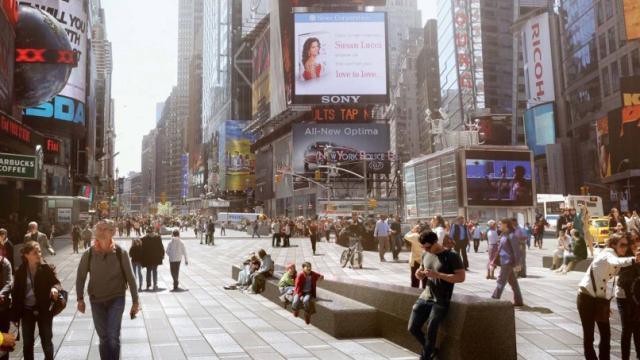Driving in the city sucks. There are other cars and buses and bikes and people — god, so many people. And cars — being heavy metal machines capable of moving at great speed — are also highly dangerous. Instead of trying to accommodate everyone in an unhappy medium, cities are increasingly designing streets for pedestrians over cars. Check these ambitious projects all over North America doing exactly that.
Times Square Transformed in Manhattan
After a tremendously successful pilot project back in 2009, New York City hired the architectural firm Snøhetta to make parts of Times Square permanently pedestrian-only. The first phase just wrapped up at the end of last year, and the whole project is expected to be finalised in 2015.
Granite benches line the bowtie-shaped public plaza. The custom concrete pavers on the ground are also embedded with small metal disks that capture and reflect the Square’s characteristic neon glow. Since Times Square has become more pedestrian friendly, foot traffic and store sales have gone up dramatically.
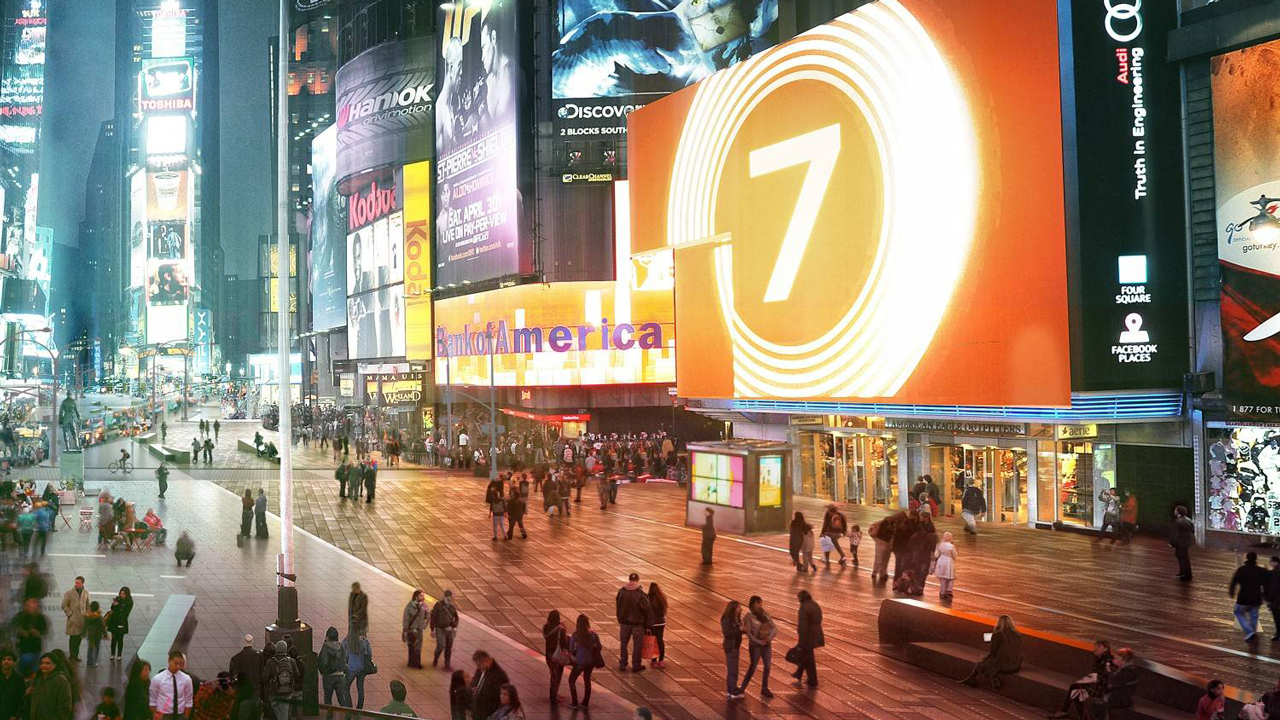
Watch Times Square and other parts of New York City transform from a honking mass of cars to vibrant sidewalks in the video below.
Images via Snøhetta
San Francisco’s Car-Free Market St.
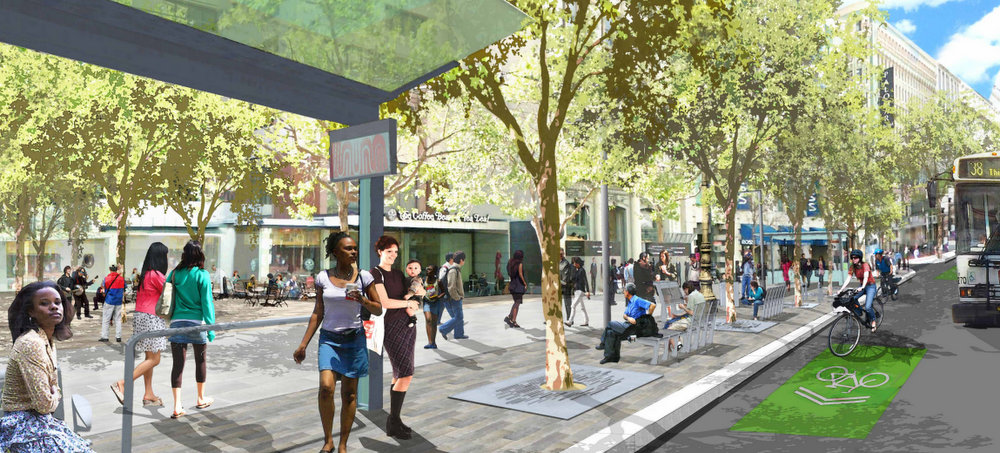
Market Street — San Francisco’s thoroughfare — is a crowd of cars, bikes, trolleys, buses, and pedestrians all competing for space. A stretch through downtown includes four of the city’s 20 most dangerous intersections for pedestrians and two for bikers.
Since 2009, city planners have been implementing policies that push private cars off of Market altogether. Proposals include protected bike lanes and a car-free street between the hours of 7am and 7pm. They have just unveiled an expanded plan that forces cars to detour around Market entirely, clearing the way for faster buses and for safer pedestrian crossings. Because Market is the dividing line between two angled grids in San Francisco, as you can see in the map below, driving around Market gets quite tricky, and it’s a real challenge to implement the detour correctly.
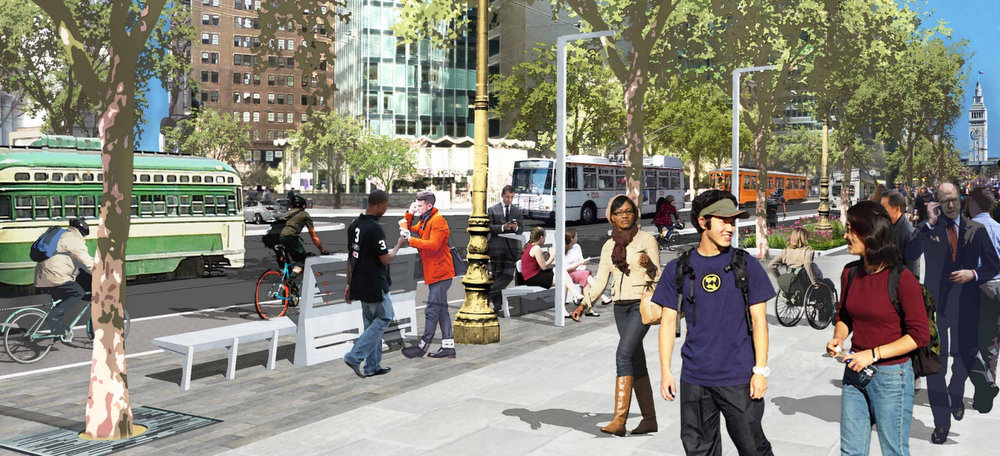
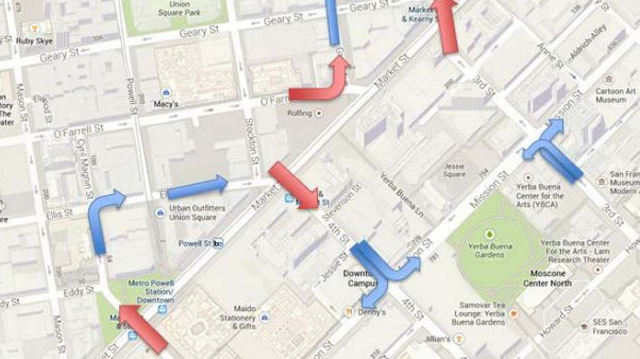
Images via Better Market Street, SFMTA
Bringing Back Broadway in Los Angeles
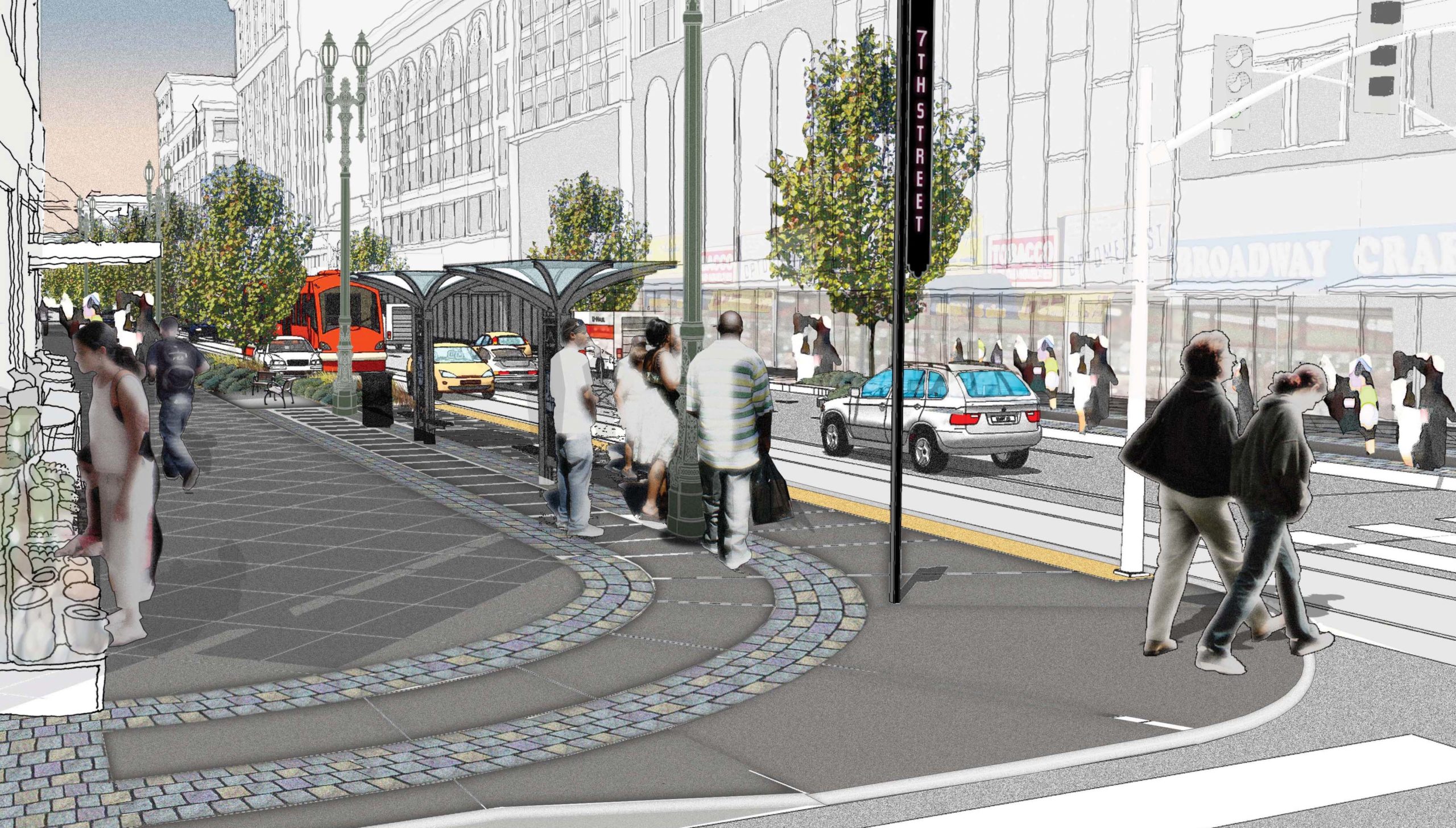
Los Angeles is reimagining Broadway with pedestrian-friendly and traffic-calming designs — a plan inspired in part by Times Square. The first of two phases in the Broadway Streetscape Master Plan is currently underway.
In this initial “dress rehearsal,” temporary barriers like plastic poles and planters will reduce the number of car lanes from three to two. The west sidewalk will be widened by 8 feet to 20 feet, and both sidewalks will get bulbed out curb extensions to slow traffic at intersections. If it all goes according to plan, these changes for the historic thoroughfare will be made more permanent in phase two of the Streetscape plan.
Image via City of Los Angeles
Mexico City’s Historic Center
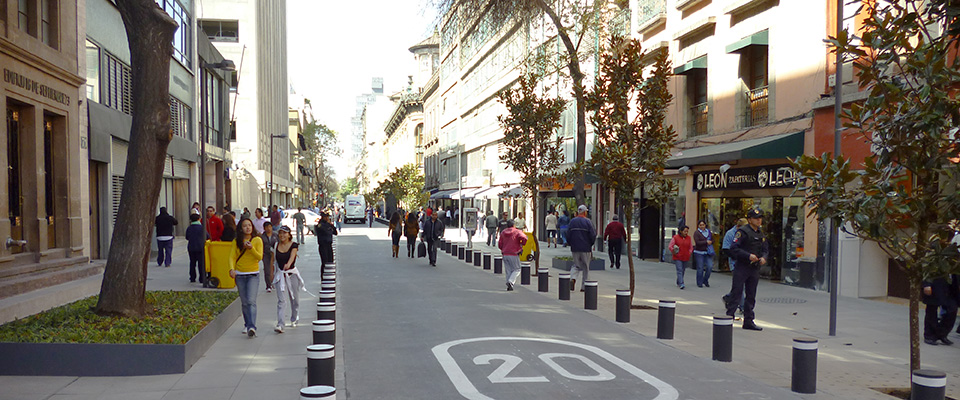
Boasting cathedrals, palaces, and plenty of history, the old center of Mexico City has been revitalized for pedestrians. Madero Street was turned into a car-free pedestrian walkway a few years ago and is now a magnet for street performers.
More recently, Avenue 16 de Septiembre, shown here, is one of 14 projects in Mexico City’s 2013-2018 Plan for the Historic Center. A lower speed limit and wider sidewalks puts pedestrians first. Other pedestrianized streets, additional bike lanes, and a Metrobús BRT line all make going car-free in the city’s Historic Center a lot easier.
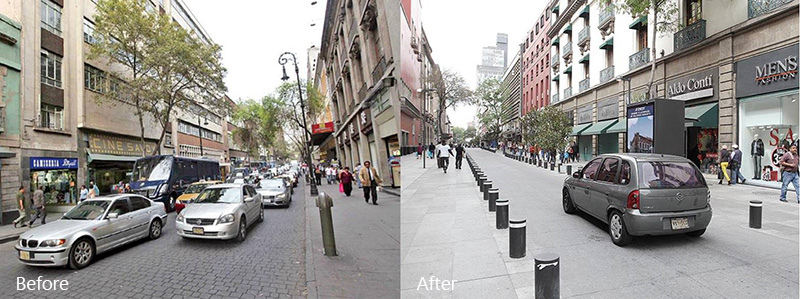
Images via ITDP
Chicago Changes the Guiding Philosophy of Its Streets
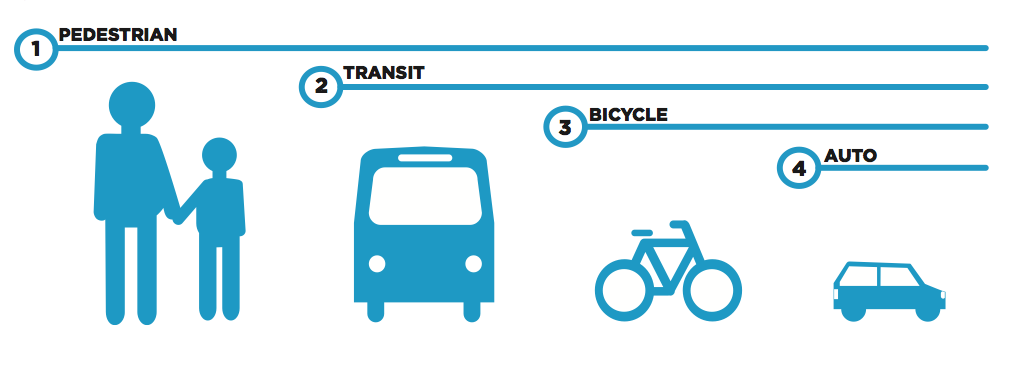
Famous streets redesigned with gorgeous renderings are great and all, but remaking the city for pedestrians is more than just changing a neighbourhood or two. That’s why Chicago’s boring-sounding Complete Streets Design Guidelines is a real paradigm shift.
When we think of streets, we almost certainly think of cars — and so have street designers. But Chicago has switched over its street designing philosophy, putting pedestrians first and cars, believe it or not, last.
As the Atlantic Cities reported last year, this isn’t about a pedestrian v. car war; this is about making the city’s department of transportation consider all forms of transportation at once. “That means that road crews heading out to resurface a street might consider ahead of time striping new bike lanes,” writes Emily Badger. “Electrical engineers optimising streetlights for car traffic will also think about crosswalk times. And construction teams rebuilding an entire boulevard may have to pause to consider pedestrian islands in the roadway, or bike parking on the sidewalk.”
The devil is in the bureaucratic details, and it’s these small changes all over the city that will add up to a pedestrian-friendly metropolis. Are there any pedestrian-first schemes underway near you? If so, drop them in the comments.
Image via City of Chicago
